Global and Iranian history are both closely intertwined with the lives and destinies of prominent figures. Every one of them has laid a brick on history's wall, sometimes paying the price with their lives, men and women alike. Women have been especially influential in the last 200 years, writing much of contemporary Iranian history.
In Iran, women have increased public awareness about gender discrimination, raised the profile of and improved women's rights, fought for literacy among women, and promoted the social status of women by counteracting religious pressures, participating in scientific projects, being involved in politics, influencing music, and cinema. And so the list goes on.
This series aims to celebrate these renowned and respected Iranian women. They are women who represent the millions of women that influence their families and societies on a daily basis. Not all of the people profiled in the series are endorsed by IranWire, but their influence and impact cannot be overlooked. These articles are biographical stories that consider the lives of influential women in Iran.
IranWire readers are invited to send in suggestions for how we might expand the series. Contact IranWire via email ([email protected]), on Facebook, or by tweeting us.
Her name is so interwoven with tales of leadership and fearlessness that she became known by the name of her famous tribe, as well as by the name of the family she was born in: Sardar Maryam Bakhtiari.
A commander without military rank, Bakhtiari stood up to the cruelty enacted against her homeland and tribe, as well as picking up the rifle to defend it from foreign enemies. A revolutionary daughter of the Bakhtiari and Chahar Lang lineages, she became the only woman who to wear the German Golden Cross on her chest after leading a troop of German soldiers through Bakhtiari territory, later receiving an Iron Cross for her courageous work during the First World War.
The painful songs of Bakhtiari mothers, who lost their children during the conflict, are still alive and echo with the memory of “Bibi Maryam”’s mourning for her own son: “Applaud without a bride, so that I’ll go to war, Mamdali Shir Ali Mardan / I’ll thrust my sword into the soil for Chahar Lang tribe, Mamdali Shir Ali Mardan.”
Daughter of a Commander, Betrothed at Birth
Born in 1874, “Bibi Maryam” was the daughter of Hossein Qoli Khan, the headsman of the Bakhtiari clan. She was the sister of Ali Qoli Khan Sardar Asad Bakhtiari, a Bakhtiari commander who went on to become a key figure – alongside his sister – in the Constitutional Revolution.
Born in one of the country’s most turbulent historical eras, since her infancy Bibi Maryam’s pre-inscribed destiny had been to marry Ali Qoli Khan Chahar Lang, the likely successor to chieftaincy of the Chahar Lang tribe.
When she was nine years old, her father came into conflict with then-ruler Naser al-Din Shah Qajar. The fallout led to his assassination.
In her memoirs, Bibi Maryam wrote: “My father did not think they could harm him in a mortal way, because he was very powerful and the Bakhtiari tribe was also very strong. Zel ol-Soltan [the governor of Isfahan and Fars provinces] summoned my father to go to himm and he was killed inside his despicable castle.” Later, ol-Soltan and his associates circulated the rumor that her father had simply died in bed.
Bibi Maryam had been just 40 days old when her father signed her marriage contract with Ali Qoli Khan Chahar Lang. After her father’s death, her brothers tried to break the bond, but their efforts failed. Maryam was interrupted in the middle of her primary education and made to join her husband’s tribe, and began to live with him when she was 15.
Because of her nomadic background, Bibi Maryam was skilled in shooting and horse riding. As the wife of the chief of the tribe’s successor, she had a number of riders under her command. Soon, however, her husband passed away and left her with their small children. According to some historical sources he was killed, but Bibi Maryam simply writes that he died at young age. After his death, Bibi Maryam moved into her brother’s house for a time before ultimately marrying her cousin, Fatollah Khan Zaim ol-Saltaneh.
Leading the Men Into Battle
Bibi Maryam’s name began to circulate in wider Iranian society in 1906, after Mozaffar ad-Din Shah Qajar signed the new Persian Constitution. The Bakhtiari tribe and her own brother had been among the most vocal proponents of the Constitutional Movement.
After the bombardment of the parliament by Mohammad Ali Shah Qajar in 1907, the Bakhtiaris were also among the first to call for restoring the Constitution. Bibi Maryam supported the decision and convinced Sardar Asad Bakhtiari to invade Tehran.
“Now that you have made your decision to be committed and manly in this respect,” she wrote to her brother, “if all the brave Bakhtiari men are killed, I will gather all the Bakhtiari women and we will put them in coffins, pick up rifles, and move to defeat the enemy by storming this camp of despotism. I hope you will eradicate the rotten roots of despotism with your high intelligence and the forces of the brave Iranian youth."
Bibi Maryam’s house in Isfahan was the place where combatants gathered. She personally sent letters and telegrams to the heads of different tribes, and delivered provocative and stimulating speeches before Iran’s tribal people, calling on them to fight against tyranny.
Before the conquest of Tehran in 1909, she secretly entered the city with a group of riders and stayed in a house overlooking Baharestan Square, where the parliament building was located. As soon as Sardar Asad attacked Tehran with the aid of modern arms from the German Empire, she fortified the roof of the house and together with Bakhtiari riders, attacked pro-government forces from behind.
Bibi Maryam personally picked up a rifle, sat on a horse and fought alongside the men. Though her role in conquering Tehran was lost in the patriarchal history of Iran, her popularity among her tribe increased dramatically in her own time, to the extent that she was given the rank of commander and was called Sardar.
Bibi Maryam’s endeavors to force democratic reforms in Iran did not end there. After the conquest of Tehran, her house became a refuge for numerous liberalists of the Constitutionalist Movement in Reza Shah Pahlavi’s era. Among them were the poet laureate Mohammad-Taqi Bahar and the linguist Ali-Akhbar Dehkhoda, both of whom would later become MPs. It was during his stay at Bibi Maryam’s house that Dehkhoda, creator of the most extensive Persian dictionary to date, first came up with the idea of compiling his collection of Farsi words. This great woman served as his first motivator.
Rescuing German Forces From the Allied Onslaught
With the outbreak of the First World War, Bibi Maryam together with a group of women in Isfahan reached the conclusion that they should be supporting the Germans. When Russian forces invaded Isfahan the German charge d’affaires, von Kardoff, took refuge in her house for three months.
After this attack the Russian and British forces began to pursue a legion of the German Army through Iran, as well as German political representatives near Isfahan. Bibi Maryam and her own troops, with the support of the Axis Powers and particularly the Germans, fought against the Allies and resisted their joint forces in the area of Tiran and Karvan, forcing them to retreat after a fierce battle.
Consequently the German legion was rescued and was taken to the Bakhtiari base in the city of Surshjan. They were later able to leave Iran through the Ottoman territories. In recognition of Bibi Maryam’s having come to the aid of the Germans, the German Emperor, Wilhelm II, awarded her the enamel and diamond medal of the German Golden Gross, as well as his Iron Cross, the most important German military decoration. She remains the only woman in the world to have received this.
Campaigning to the Death: Like Mother, Like Son
After the war, Bibi Maryam was a staunch opponent of the 1919 agreement with the British. While it was being reviewed in the Iranian parliament, she continued to campaign against it both in Esfahan and Tehran. She also opposed the coup of February 1921 by Reza Pahlavi and received dissident and deposed politicians as guests in her home.
Despite her own education having been cut off prematurely, Bibi Maryam was also an enlightened woman who stood up for women’s rights in a patriarchal society. She tried to change some prevalent traditions, including the betrothal of newborn girls to distant future husbands, compulsory marriage, inequality in inheritance laws, women not having the right to divorce, and naturally, their not having the right to education. From her own experiences, she understood the depth of Iranian women’s problems and the extent of the challenges the fledgling women’s movement would face.
Bibi Maryam’s memoirs are written in very simple language. She writes that in her view, ignorance is the main cause of women’s relegated status. “We are responsible for all our deprivations,” she writes, “because we are neither literate nor aware of our rights.
“If we too knew why we were created, we would fight. We now think that we were just born to satisfy men’s lust or to act as maidservants, when we could be appealing to all the nations of the world for our human rights and enforcing them, because it’s the 20th century now and the so-called Golden Age, according to foreigners. Today European women occupy high ranks in all states and national institutions. They can become members of parliament, while we Iranian women are totally outside the human world.”
She goes on to lament her lost aspirations and those of the majority of the Iranian women, particularly Bakhtiari women, for “eradicating rotten traditions”: “So many dreams are buried. How much I aspired to carry out useful works in the Bakhtiari tribe, especially for its miserable women.”
In 1934, Bibi Maryam’s son Ali-Mardan Bakhtiari stood up against Reza Shah’s new ruling on the forced settlement of Iran’s tribes. He was arrested after five years of fighting against central government and hanged in Qasr prison.
The Iranian writer Bozorg Alavi, one of the witnesses of his execution, recalls: “Clad in a decent outfit, well-groomed, he walked like Halaj with long firm steps, without the slightest sign of fear, toward his slaughter. In fact, through his death, he was going to become an innocent witness of a despotic regime.”
Quoting one of the prison guards who also witnessed the execution of this brave head of Bakhtiari tribe, the communist politician Seyed Jafar Pishevari writes: “At the last moments when they wanted to tie him to the gallows, he squashed the Pahlavi hat as a sign of his hatred for Pahlavi regime, and threw it away.
“His expressive voice, shouting ‘Long Live Iran’, was silenced with the whizzing sound of several bullets. Moments later, the lifeless body of a man, with the heart of a lion and an iron determination, whose back no combatant had ever seen in the battlefield, slid down to the foot of the gallows.”
Bibi Maryam resolutely mourned the death of her son, who in her eyes and the eyes of many others had died for his homeland. Her mourning became a symbol and ode to all tribal mothers who had lost their children. Numerous hymns and mourning songs were composed in Ali-Mardan’s memory, including the one cited at the beginning of this article. Three years later Bibi Maryam herself died in Isfahan and was buried in the famous Takht-e Foulad cemetery.
Read other articles in this series:
Maria Khorsand, Co-Creator of Bluetooth Technology
Ashraf Bahador-Zadeh, Iran’s Mother Teresa
Razieh Ebrahimzadeh, Wanderer and Communist Firebrand
Malektaj Firouz Najm ol-Saltaneh, Founder of Tehran's First Modern Hospital
Mahd-e Olia, Proxy Queen of Iran
visit the accountability section
In this section of Iran Wire, you can contact the officials and launch your campaign for various problems




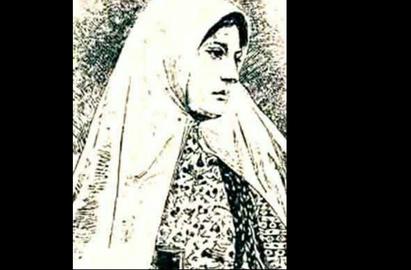
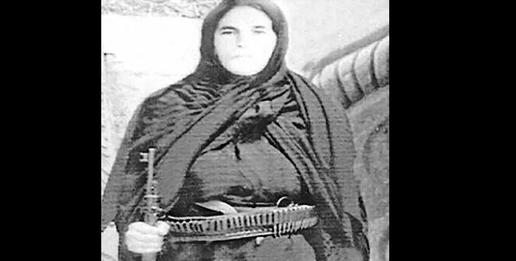
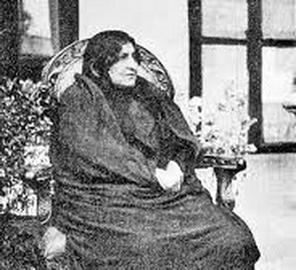
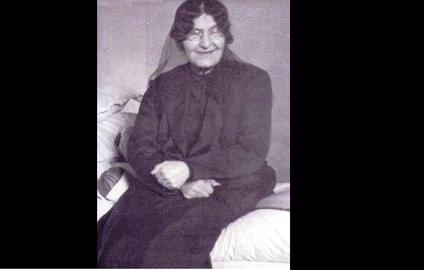




















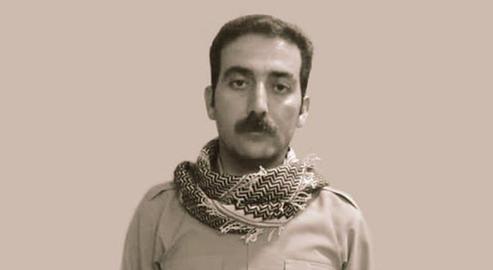
comments